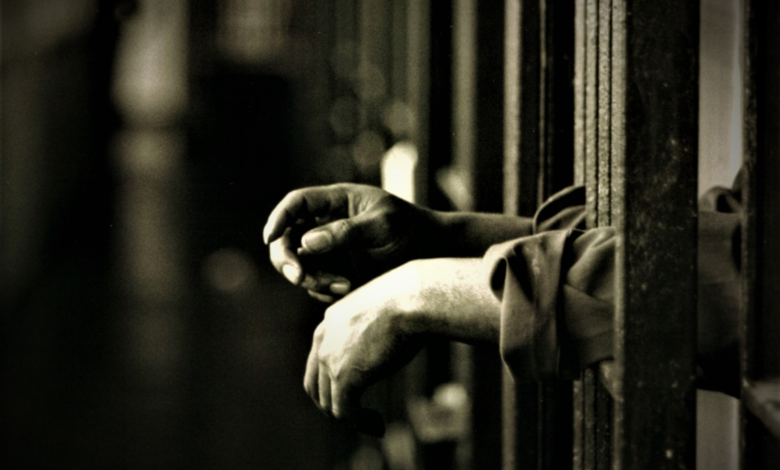
International media outlets have shown interest in the hunger strike of a conscience detainee in Saudi prisons, shedding light on the kingdom’s dark record of human rights violations and widespread torture.
According to Middle East Eye, Saudi businessman Saud Al-Faraj, who was sentenced to death following severe torture, has begun a hunger strike after being denied the opportunity to present his case before the public prosecutor.
Al-Faraj (42 years old) stated that he endured severe torture and was held in solitary confinement in a Saudi prison for 21 months, according to sources from the European Saudi Organization for Human Rights.
In 2022, Al-Faraj was convicted of participating in protests in Qatif, a predominantly Shia province in the eastern part of the kingdom, as well as managing a terrorist cell and killing police officers.
Al-Faraj has consistently denied the charges, stating that his confessions were a result of torture. This situation left him moving in a wheelchair inside and outside the prison hospital between interrogation sessions, and he was held in solitary confinement for 21 months, among other allegations.
The specialized criminal appeals court upheld the death sentence against Al-Faraj in January. His case is now before the Supreme Court, representing his last chance to avoid execution through the legal system.
In recent weeks, sources from the European Saudi Organization for Human Rights (ESOHR) reported that Al-Faraj requested to meet with the public prosecutor to lodge complaints about his mistreatment.
He also wanted to inquire why the messages he sent to the Saudi Human Rights Commission and Crown Prince Mohammed bin Salman detailing alleged prison violations were not acknowledged.
In response, officers at the Dammam prison, where he is held, assaulted him and placed him in solitary confinement, according to the same sources.
Al-Faraj then commenced his hunger strike, which has continued for the past 10 days.
His family was contacted last Monday and informed they could visit him, but upon their arrival at the prison, they were prevented from meeting him, according to the same sources.
The European Saudi Organization for Human Rights stated, “They were told he was not complying with the rules, that Al-Faraj was speaking [negatively] about the king and the crown prince, as if [the guards] were saying he was being punished, and [thus, Al-Faraj’s family] would not be allowed to see him.”
Due to the lack of transparency in the kingdom regarding executions, the European Saudi Organization for Human Rights has been concerned for months about Al-Faraj’s imminent execution risk. This fear intensified as his case reached the Supreme Court.
The organization warned that the court might have already secretly upheld the death sentence against him, and he could be executed at any moment.
They added, “Due to the lack of transparency, Saud [Al-Faraj] could be executed at any moment. Many detainees are executed even before they [learn] that their sentences have been upheld by the Supreme Court. We are very concerned about his life.”
The rate of executions in the Kingdom of Saudi Arabia has nearly doubled since King Salman bin Abdulaziz and his son Crown Prince Mohammed bin Salman came to power in 2015, according to a report released earlier this year by the European Saudi Organization for Human Rights and Reprieve organization.